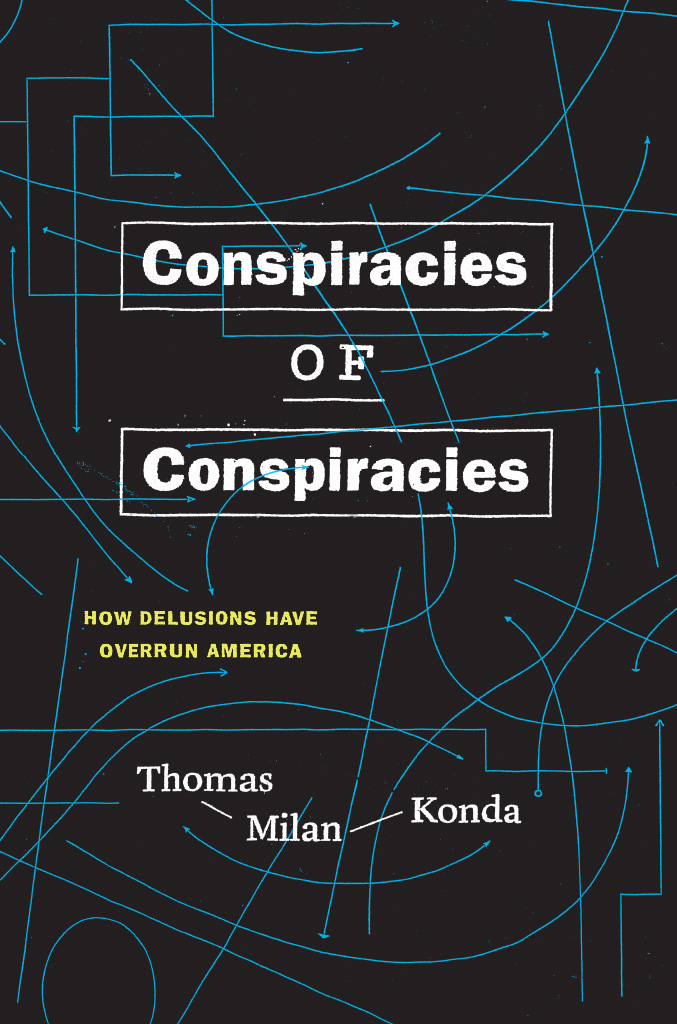
CONSPIRACIES OF CONSPIRACIES
The University of Chicago Press, Chicago 60637
The University of Chicago Press, Ltd., London
2019 by The University of Chicago
All rights reserved. No part of this book may be used or reproduced in any manner whatsoever without written permission, except in the case of brief quotations in critical articles and reviews. For more information, contact the University of Chicago Press, 1427 E. 60th St., Chicago, IL 60637.
Published 2019
Printed in the United States of America
28 27 26 25 24 23 22 21 20 19 1 2 3 4 5
ISBN-13: 978-0-226-58576-5 (cloth)
ISBN-13: 978-0-226-58593-2 (e-book)
DOI: https://doi.org/10.7208/chicago/9780226585932.001.0001
Library of Congress Cataloging-in-Publication Data
Names: Konda, Thomas Milan, author.
Title: Conspiracies of conspiracies : how delusions have overrun America / Thomas
Milan Konda.
Description: Chicago ; London : University of Chicago Press, 2019. | Includes
bibliographical references and index.
Identifiers: LCCN 2018034310 | ISBN 9780226585765 (pbk. : alk. paper) | ISBN
80226585932 (ebook)
Subjects: LCSH: Conspiracy theories. | HistoryErrors, inventions, etc.
Classification: LCC AZ999 .K65 2019 | DDC 001.9dc23
LC record available at https://lccn.loc.gov/2018034310
 This paper meets the requirements of ANSI/NISO Z39.481992 (Permanence of Paper).
This paper meets the requirements of ANSI/NISO Z39.481992 (Permanence of Paper).
For June
CONTENTS
CONSPIRACY THEORIES AND CONSPIRACISM
The definition of conspiracy theory poses unexpected difficulties.
Brian Keeley, Of Conspiracy Theories
Americans see hoaxes and plots everywhere: from climate change to immunizations to almost anything having to do with Hillary Clinton. But why? Is the constant stream of conspiracy theories a side effect of social media? Are conspiracy theories a product of the increasing polarization of politics? Or have they always been around and for some reason we just notice them more now?
We can start to answer the last question: in their modern form, they have been around for at least two hundred years. The United States was less than ten years old when New England religious leaders sounded the alarm about the Illuminatis plans to destroy the republic. And this was only the beginning. In 1831, the Anti-Masonic Party held the first national political convention. Perhaps predictably, speeches there were peppered with conspiratorial rhetoric about Freemasonry. Before inventing the telegraph, Samuel Morse gained fame by warning that the Austrian emperor had orchestrated a conspiracy to undermine the worlds greatest Protestant republic by flooding America with Catholics. By the end of the nineteenth century, free-silver populists were portraying their economic plight as the result of a British (and often Jewish) banker conspiracy.
By the end of World War I, conspiracy theories began to have more staying power. The lasting menace of Bolshevism-socialism-Communism contributed to a certain constancy of conspiratorial thinking. At the same time, the idea of the International Jew (largely the creation of the fraudulent Protocols of the Learned Elders of Zion) gave rise to a series of antisemitic conspiracy theories that have still not run their course. Americas turn toward international involvement powered conspiracy theories from isolationists and America Firsters. The growing presence of the federal governmentWilsonian progressivism, FDRs New Deal, Lyndon Johnsons Great Societyfueled another array of conspiracy theories: federal support of civil rights was said to be part of a conspiracy against the white race; federal reorganization schemes were said to be part of the conspiracy to destroy the states. And, of course, the Kennedy and King assassinations contributed their share of conspiracy theories.
So, yes, there have been conspiracy theories all along. But there is also something new that has transformed the conspiratorial landscape: conspiracisma mental framework, a belief system, a worldview that leads people to look for conspiracies, to anticipate them, to link them together into a grander overarching conspiracy. Conspiracism has been building for some time, and by now it appears to have emerged as the belief system of the twenty-first century. Its adherents range from people who are beside themselves with conspiratorial rage, such as radio-show host Alex Jones, down to everyday people who are reluctant to have their children immunized because they accept vaguely conspiracist claims about vaccines. While many analysts believe that social media have accelerated conspiracisms growth, the reason for its prominence is still an open question.
This book analyzes conspiracism from three perspectives. First, research about the nature of individual peoples beliefsprimarily cognitive research in psychology and epistemological research in philosophy. The psychology deals with the question of why people believe conspiracy theories, while the philosophy deals primarily with what a conspiracy theory actually is. Second, historical research on the political, social, religious, and other developments that can create circumstances conducive to conspiratorial thinking. The history shifts the questions away from the individual to the level of society as a whole. And third, the actual writings of conspiracy theorists and their followers. These, although often disturbing, can provide visceral insight into both the thought processes of conspiracists and their perceived social circumstances. Taken together, these different approaches yield a new and, I believe deeper, analysis of conspiracism and the theories it generates than has been available before.
Problems of Definition
Conspiraciststhat is to say, those whose belief system is conspiracismhave a predilection, perhaps even the need, to see conspiracies behind events, and not just major events such as the Kennedy assassination or the 9/11 attacks, when doubt and suspicion are widespread. Conspiracists consistently find conspiracies where others do not. For example, the creation of nonbinding recommendations for sustainable growth at the 1992 Rio Earth Summit was a thoroughly routine event, but many conspiracists view what they call Agenda 21 as the work of global Communism, or part of an evil plot to have 90% of the worlds population murdered by abortion and aborting life by disease, famine, wars, wrecking of the economy, industry, technology, giving vaccines and medicines which give a slow death.
It may not be necessary to go quite this far. People can compartmentalize their thinking and hold conflicting ideas associated with different belief systems. Nevertheless, conspiracism as a belief system is generally very broad and influences its adherents thinking across many subjects. Conspiracism is also distinctive as a belief system for two reasons. First, it is inherently negative. Conspiracists fear and oppose the conspiracies they envision, because those conspiracies are invariably aimed at destroying their way of life. Hence, the struggle against the unending stream of Illuminati, Zionists, forces of Satan (or Lucifer), mind controllers, and the global elite ensconced in its many secret societies. Second, conspiracism as a belief system lends itself to obsessiveness. Conspiracists seem much more aware of their belief system than most people are, leading them to consciously apply it to events on a daily basis.
Next page
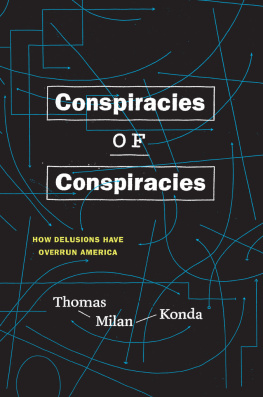

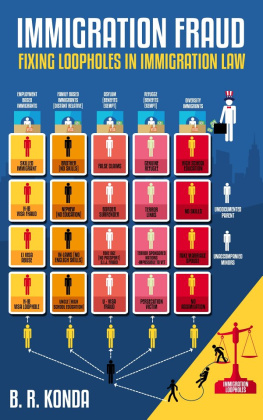

![Christopher R. Fee - Conspiracies and Conspiracy Theories in American History [2 Volumes]](/uploads/posts/book/429085/thumbs/christopher-r-fee-conspiracies-and-conspiracy.jpg)



![Monte Cook - The Skeptics Guide to Conspiracies: From the Knights Templar to the JFK Assassination: Uncovering the [Real] Truth Behind the Worlds Most Controversial Conspiracy Theories](/uploads/posts/book/346601/thumbs/monte-cook-the-skeptic-s-guide-to-conspiracies.jpg)
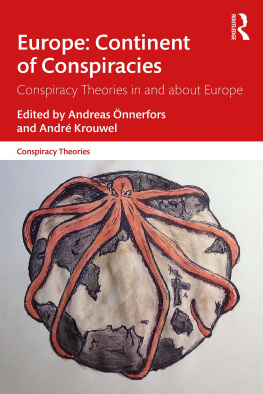

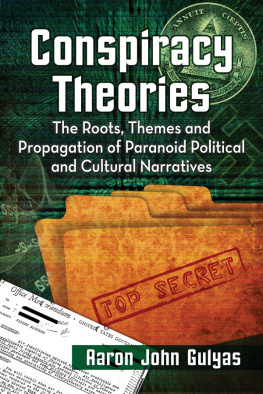


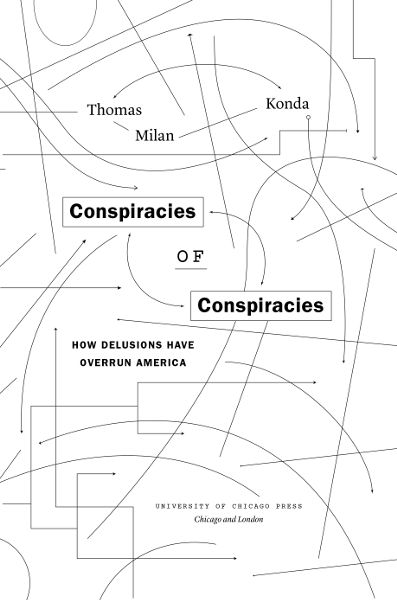
 This paper meets the requirements of ANSI/NISO Z39.481992 (Permanence of Paper).
This paper meets the requirements of ANSI/NISO Z39.481992 (Permanence of Paper).
